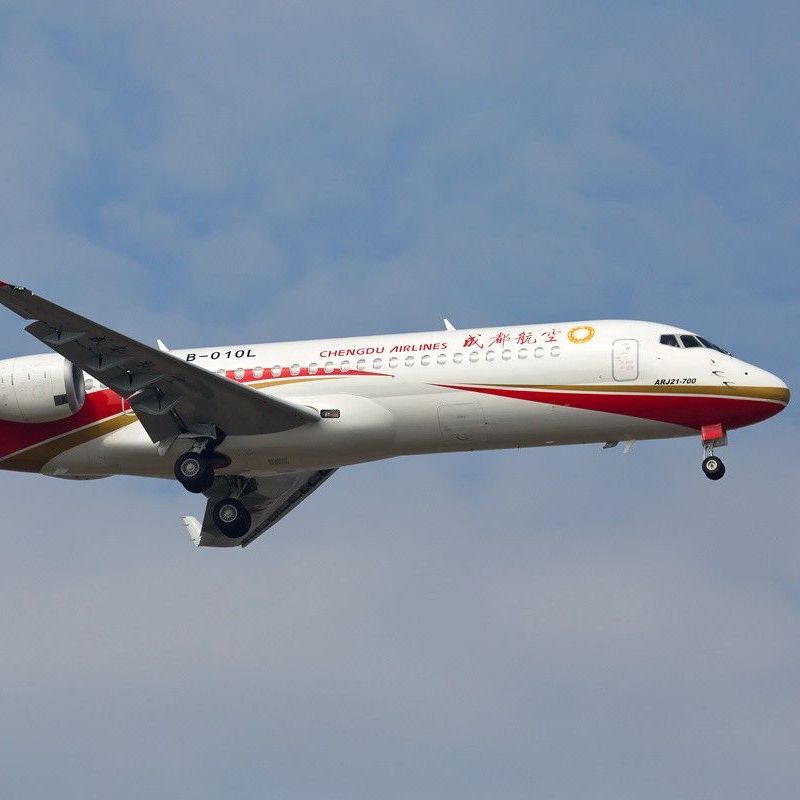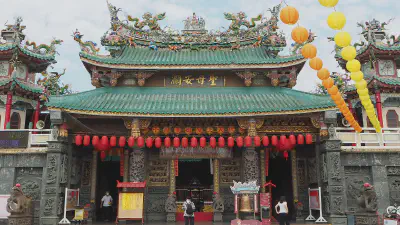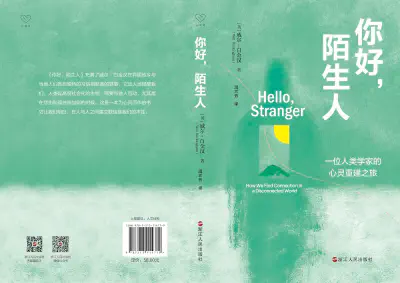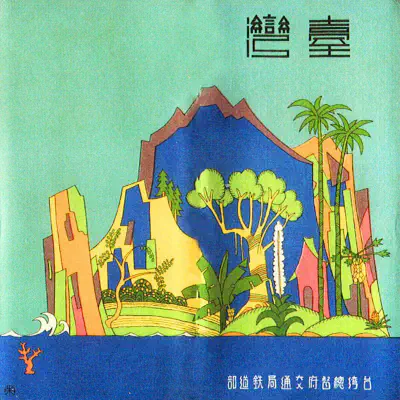My alarm went off at 4.30 this morning — criminally early. I staggered out of bed, stuffed a few things in a bag, double-checked I had the paperwork I needed, and caught a taxi to the airport. I was heading to Shenzhen, and from there to Hong Kong, where I am sorting out some visa issues before I return to Chengdu next week.
I boarded the Chengdu Airlines flight at seven, and was surprised to see the cabin adorned with signs in Chinese wishing passengers a happy Thanksgiving. I didn’t know it was Thanksgiving, because we don’t really do Thanksgiving in the UK. We don’t really know what it is for. If pushed, we might say it is something to do with people in strange hats and turkeys and harvests and the history of colonialism: but we are typically vague on the details. Anyway, the festival seems to be catching on in China, and the celebratory texts around the cabin gave things a cheery air.
After we took off from Chengdu, I fell asleep. I was woken up for a Thanksgiving feast of indifferent noodles. I closed my eyes again, settling back into the rhythm of the flight, familiarising myself with the strange, bland limbo of life at thirty thousand feet.
But then, after the foil noodle dishes were cleared away, one of the stewardesses made an announcement. ‘We would like to wish our customers a happy Thanksgiving,’ she said. And then she and her colleague unfurled a large red banner that stretched across the front of the aircraft. It read somewhat cryptically, in Chinese, as follows:
中国梦民航梦 国之骄傲 ARJ21
Chinese Dream, Civil Aviation Dream: National Pride ARJ21
Everybody clapped. So I clapped as well, although I was not entirely sure what I was clapping for. Some of it was self-explanatory. For example, the Chinese Dream, as most readers of this blog will probably know, is Xi Jinping’s answer to the American Dream. It is hard to go anywhere at all without coming across it. Exhortations to dream the Chinese Dream are everywhere: in restaurants, in the media, on subway advertisements, and plastered onto walls. At the moment, China is a pretty dreamy place.
The second part of the banner, however, was a bit more puzzling. Having no access to the internet at thirty thousand feet, I asked the guy next door to me if he knew what ARJ21 meant, because I had no idea. He just shrugged and went back to his book. It was only after the flight that I got the chance to look up the mystery code: ARJ21. It turned out it referred to a Chinese passenger jet — more excitingly known as the 翔凤 xiang feng, or ‘Soaring Phoenix’ — that is soon to be put into service on passenger routes with Chengdu Airlines. The Soaring Phoenix has been a long-term, and somewhat behind-schedule project, but it is now a whisker away from going into active service and should be taking to the skies next year.
As I was puzzling over the mystery of ‘National Pride ARJ21’, the stewardesses rolled their trolley into the aisle, and I saw that it was decked out with various gifts: there were those U-shaped neck-cushions you inflate and use to sleep on planes; there were some small ornamental masks; and there was a brace of cuddly pandas clutching fronds of bamboo.
I assumed that this was the bit of the flight where passengers are sold merchandise. But what happened next was more puzzling and intriguing than this. One of the stewardesses came on the public announcement system again and said, ‘Now we are going to have some Thanksgiving activities.’
Activities? I thought. In a plane? Like musical chairs or blind man’s buff? But because everybody was applauding this as well, I thought I should do the same. ‘We would like to invite two married couples to come and play a game,’ the stewardess said. ‘Please, come to the front of the plane. We will have a quiz. You have a chance to win a panda, one of Chengdu’s national treasures.’
This suddenly seemed far better than anything that had ever happened on any flight I had been on in living memory. And so by now, despite my early start, I was now fully awake. The stewardesses were working their audience, passing the tannoy system between themselves, making jokes to warm up the crowd, to put the audience in a good mood. Because that’s what we were all of a sudden: not passengers, but a crowd, or an audience. And it felt good.
Two couples came forward. They stood at the front, and the stewardesses asked the wives to write down details about themselves: When were they born? What was their favourite colour? What food did they like? Then the husbands were asked about their wives, and they answered on the tannoy, and the wives read the real results, and everybody laughed and clapped, and — if the answers were right — cheered.
At the end of the quiz, it was decided that both husbands (who had managed quite well in answering the questions put to them) were deserving of prizes. So the happy couples posed with the stewardesses and the pandas, Chengdu’s national treasures, and the purser took photographs. Then the husbands and wives returned to their seats, beaming and clutching their cuddly pandas.
By now the stewardesses were hitting their stride. They set another challenge for individual passengers to come forward and sing songs of gratitude into the tannoy to win themselves a panda. A man in his forties from the front row stood up, thanked his mother and father, thanked his teachers, and then sang a sweet song of gratitude. The applause was resounding. The stewardess congratulated him and he, too, returned to his seat with a panda.
It was only then that a terrible thought struck me. I realised I was the only obviously non-Chinese passenger on the plane. Not only this, but I was sitting in the fourth row from the front, just by the aisle, in a position of maximum exposure. And one of the stewardesses was beaming at me. ‘Would anybody else like to come and express their gratitude?’ she asked.
A cold fear gripped my heart as I imagined myself singing songs of gratitude through the public address system in faltering Chinese, at thirty thousand feet. But if I am to be wholly honest, I should also say that I was torn. Wouldn’t it feel good, I thought, to break into an improvised song in Chinese, on a passenger plane heading across China? And besides, those cuddly pandas were pretty darned cute…
But — perhaps fortunately — another couple of passengers surpassed me in their enthusiasm. They hurried past me to the front to make breathless announcements about their thankfulness to their teachers, parents, family and friends. There was no more singing, but there was a lot of cheering and clapping. The purser continued to snap photographs.
Then I saw one of the stewardesses glance at her watch, and it was time to bring the show to an end. As a closing gesture, the stewardesses passed the red banner down the cabin along with a marker pen, so that some of the passengers could sign it. ‘Give it to the foreigner,’ the purser said. ‘Let the foreigner sign it.’ So the stewardesses held up the banner in front of me. ‘Please,’ they said, ‘write something for Thanksgiving.’
I took up the pen, thought for a second, and then — just under the words ‘National Pride ARJ21’ — I wrote ‘Happy Thanksgiving,’ and I signed my name. The wishes were heartfelt. The purser photographed me signing the banner, then the stewardesses rolled it up, wheeled away the trolley, and for a final time gave us their seasonal wishes.
Then it was time to strap ourselves back in again and prepare to commence our descent. We were no longer a crowd or an audience. We went back to being passengers, as is perhaps only right. But as we came in low over the water towards Shenzhen, I felt grateful to the staff of Chengdu Airlines, for the reminder that even at thirty thousand feet, we are human beings who depend upon each other and who can take delight in each other. And for such a reminder, I feel that the cabin crew of today’s flight should, alongside the pandas, be also counted among Chengdu’s most precious national treasures.
Image: Photograph: Chengdu Airlines COMAC ARJ21–700 by Danny Yu. Creative Commons 4.0. Via Wikimedia Commons.



